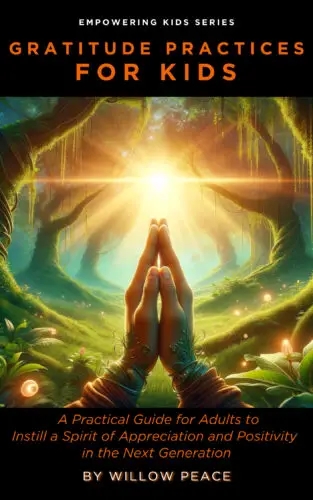April 23rd, 2025
Staff Writer for Wake Up World
Music weaves magic into our lives, stirring emotions and sparking joy. But did you know it also holds profound healing potential for humans, plants, and animals? Recent research, including a groundbreaking study on the effect of music on the brain’s reward system, reveals how sound vibrations can improve our well-being, boost plant growth, and soothe animals. Let’s dive into this symphony of science and discover how music can transform life across species.
Music’s Impact on the Human Brain
A 2025 study explores how enjoyable music activates the brain’s opioid receptor system, the same network associated with pleasure and reward. Researchers found that listening to self-selected music, such as pop or hip-hop, increased receptor availability in brain regions like the ventral striatum and amygdala. “Pleasurable music was associated with larger pupil size and higher heart rate,” the study notes, signalling physical arousal tied to joy [1]. Participants even reported chills, with an average of six per session, highlighting the emotional power of music.
This research suggests that music does more than entertain; it taps into our biology to reduce stress and enhance our mood. Other studies support this, showing music boosts cognitive skills in children and improves verbal fluency in older adults with dementia. For instance, an Orff-based music program for 8-year-olds enhanced manual dexterity, proving music’s role in brain development [2].
Music as Medicine for Mental Health
Beyond the brain, music serves as a balm for the soul. A 2019 study found that a “Music, Mind, and Movement” program improved attention and verbal skills in seniors with dementia. “Music interventions significantly improved cognitive functions,” researchers reported, offering hope for aging populations [3]. Another study showed music-making reduced hyperactivity in children, fostering emotional balance [4].
For everyday stress, music acts like a natural therapist. Whether it’s a calming playlist or an upbeat dance track, music lowers cortisol levels and promotes relaxation. This aligns with the 2025 study’s findings, which linked music-induced chills to stronger reward responses, making it a powerful tool for mental wellness.
Can Music Help Plants Thrive?
Surprisingly, music may also nurture plants. A 1962 study by Dr. T. C. Singh found that balsam plants exposed to classical music grew 20% taller with 72% more biomass [5]. More recent research echoes this: roses flourished with Vedic chants but wilted when exposed to rock music. “Sound frequencies between 100-1000 Hz enhanced crop yields,” a 2018 study confirmed, suggesting vibrations stimulate plant cells [6].
While some debate these findings, the idea that sound influences growth is gaining traction. Plants may not “hear” music, but they respond to its vibrations, potentially boosting photosynthesis and growth rates. This opens exciting possibilities for sustainable farming, where music could enhance crop health naturally.
Music’s Soothing Effect on Animals
Animals, too, feel music’s calming touch. A 2012 study on kennel dogs showed classical music increased sleep and reduced stress, unlike heavy metal, which caused agitation. “Auditory stimulation significantly altered dog behavior,” researchers noted [7]. Similarly, cows exposed to soothing tunes, such as those by Simon & Garfunkel, produced 3% more milk over nine weeks, a sign of improved welfare [8].
From monkeys relaxed by species-specific calls to elephants keeping rhythm in orchestras, music enriches animal lives. Tailoring sounds to their sensory systems, as suggested in a 2022 review, could revolutionize animal care, reducing stress in shelters and farms [9].
Why Music Resonates Across Species
Why does music hold such universal power? For humans, it’s rooted in our biology, activating reward systems and fostering connection. For plants, vibrations can mimic natural stimuli, such as wind, triggering growth responses. For animals, music aligns with their auditory sensitivities, creating a calming environment. The 2025 study underscores this, showing how music’s emotional pull is hardwired into our physiology, a trait that may extend to other life forms in unique ways [1].
This cross-species effect hints at music’s role as a universal language. Whether it’s a lullaby for a child, a chant for a rose, or a melody for a cow, music bridges the gap between science and spirit, offering healing and harmony.
Practical Tips to Harness Music’s Benefits
Ready to bring music’s magic into your life? Here are actionable ways to use sound for well-being, growth, and connection:
- For Humans: Create a daily playlist with uplifting or calming songs. Try classical music for focus or upbeat tracks for energy. Join a community choir to boost mental health through shared music-making.
- For Plants: Experiment with soft classical music or nature sounds near your houseplants for 1–2 hours daily. Monitor growth over weeks to see if they thrive.
- For Animals: Play calming music, like classical or ambient tracks, for pets during stressful times, like vet visits or thunderstorms. Observe their behavior to find what soothes them best.
- Explore Music Therapy: Seek a certified music therapist for stress or cognitive support, especially for children or seniors. Online directories can help you find professionals.
- Stay Curious: Test different genres and volumes to discover what resonates with you, your plants, or your pets. Keep a journal to track the effects.
Music is more than sound—it’s a pathway to healing and connection. By weaving it into our lives, we can nurture our minds, gardens, and furry friends, creating a world that hums with harmony.
Dropdown – Article References
- Pleasurable music engages the endogenous opioid receptor system: a combined PET and fMRI study – https://link.springer.com/article/10.1007/s00259-025-07232-z
- Effects of Orff-Based Music Education on Motor Skills in Children – https://www.frontiersin.org/journals/psychology/articles/10.3389/fpsyg.2018.02616/full
- Music, Mind, and Movement: Enhancing Cognitive Functions in Dementia – https://www.frontiersin.org/journals/psychology/articles/10.3389/fpsyg.2019.01435/full
- Orchestral Training Reduces Hyperactivity in Children – https://www.frontiersin.org/journals/psychology/articles/10.3389/fpsyg.2019.00750/full
- Effect of Music on Plants – An Overview – https://www.researchgate.net/publication/291086163_Effect_of_Music_on_Plants_-_An_Overview
- Beyond Chemical Triggers: Evidence for Sound-Evoked Physiological Reactions in Plants – https://pmc.ncbi.nlm.nih.gov/articles/PMC5797535/
- Behavioral Effects of Auditory Stimulation on Kenneled Dogs – https://www.holisticvetpractice.com/wp-content/uploads/2012/10/Behavioral-effects-of-auditory-stimulation-on-kenneled-dogs-published1.pdf
- The Impact of Music on Milk Production and Behaviour of Dairy Cattle – https://www.researchgate.net/publication/369618211_The_Impact_of_Music_on_Milk_Production_and_Behaviour_of_Dairy_Cattle
- Music for Animal Welfare: A Critical Review & Conceptual Framework – https://www.sciencedirect.com/science/article/pii/S0168159122000995
About the author
John Patterson is an avid writer and researcher who delves into the latest scientific research. With an insatiable curiosity, he translates complex concepts into accessible narratives, allowing readers to embark on a journey of discovery. John bridges the gap between experts and the public through his work, igniting curiosity and inspiring meaningful conversations about scientific breakthroughs.
If You Could Align Your Work with Your Purpose—Would You?
Most people think they must choose between meaning and money—but what if you didn’t?
How open-minded would you be about a business that pays you well—without selling your soul to the system?
This isn’t just another online opportunity. It’s a plug-and-play system that lets you:
- Earn high-ticket commissions (57%+)—without the tech headaches
- Have your first $100K in sales closed for you by our expert team
- Build wealth in a way that aligns with your values, not against them
Most people will ignore this and stay stuck. But you? You’re not like most people!
Click here to watch the free masterclass now.
If you’ve found value in our articles, we invite you to support the release of our brand-new book, “Gratitude Practices for Kids: A Practical Guide for Adults to Instill a Spirit of Appreciation and Positivity in the Next Generation.“
“Gratitude Practices for Kids” brings together over 25 innovative and accessible practices designed to enhance gratitude in everyday life. This comprehensive guide is backed by 17 scientific studies, ensuring each concept is grounded in research, underscoring our commitment to nurturing growth, emotional intelligence, and positive interactions between adults and children.
We encourage you to opt for the paperback version to celebrate this new release. Dive into its fresh pages away from digital distractions, allowing you to immerse yourself in the transformative practices it offers.
Over recent years, Wake Up World has faced significant online censorship, which has impacted our financial ability to operate. Moving into book publishing represents a strategic step to secure the ongoing funds needed to continue our mission. By purchasing Gratitude for Kids, you help us keep our content free and accessible to everyone, avoiding needing a paywall. With over 8,500 articles published in the last 13 years, we remain dedicated to keeping our valuable content open to all.










